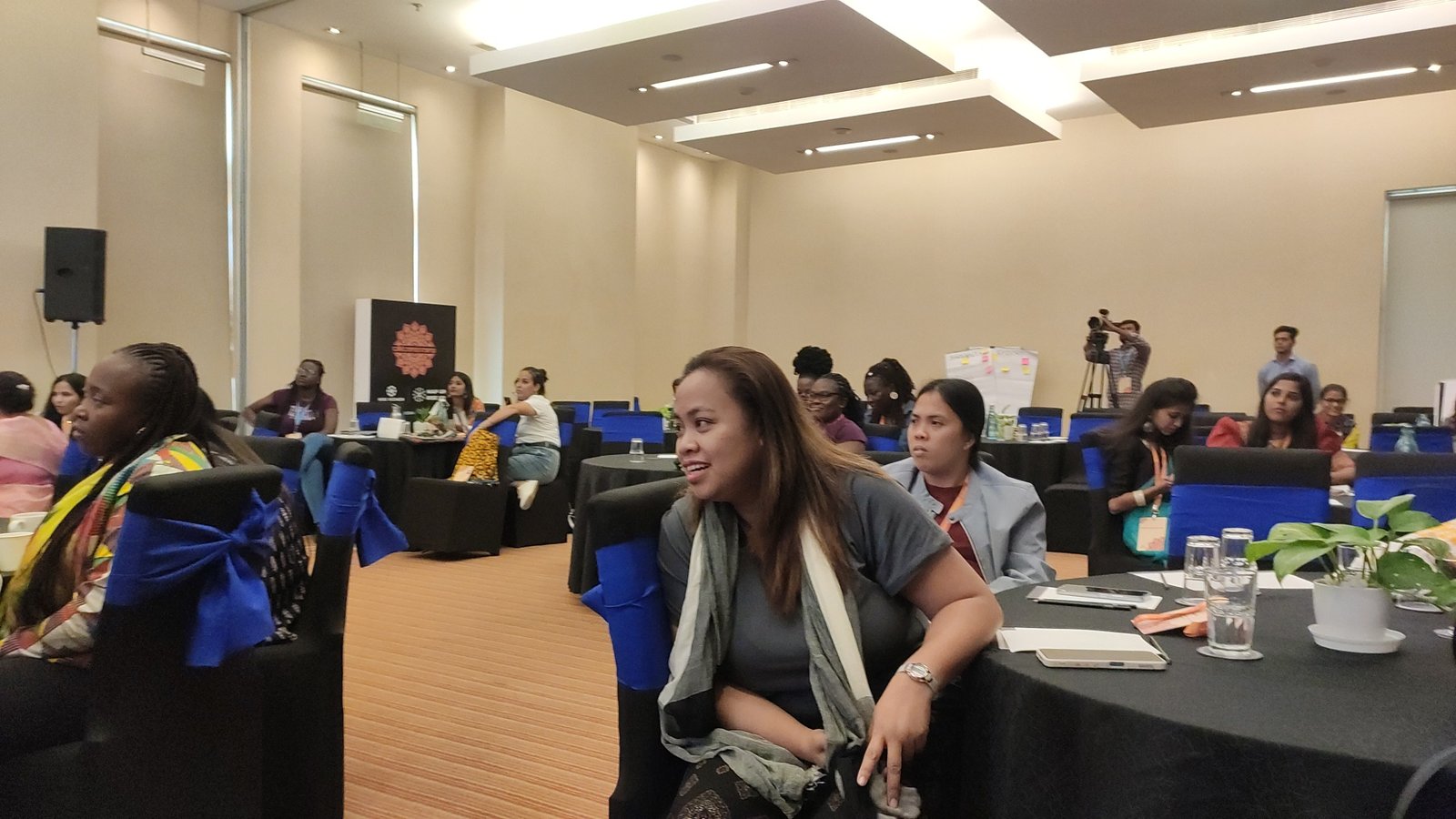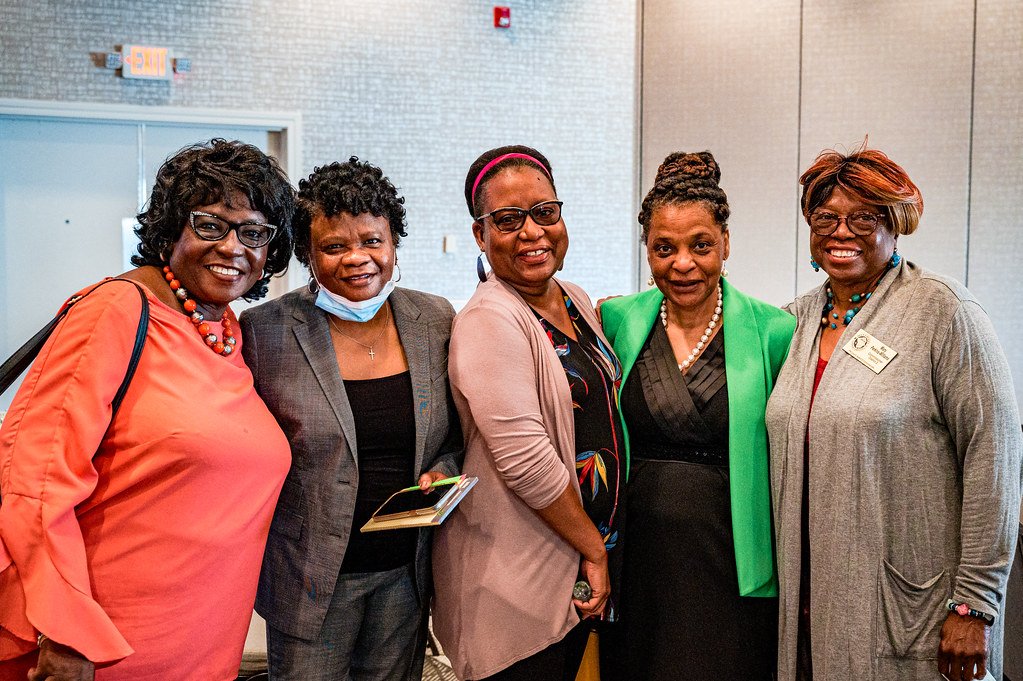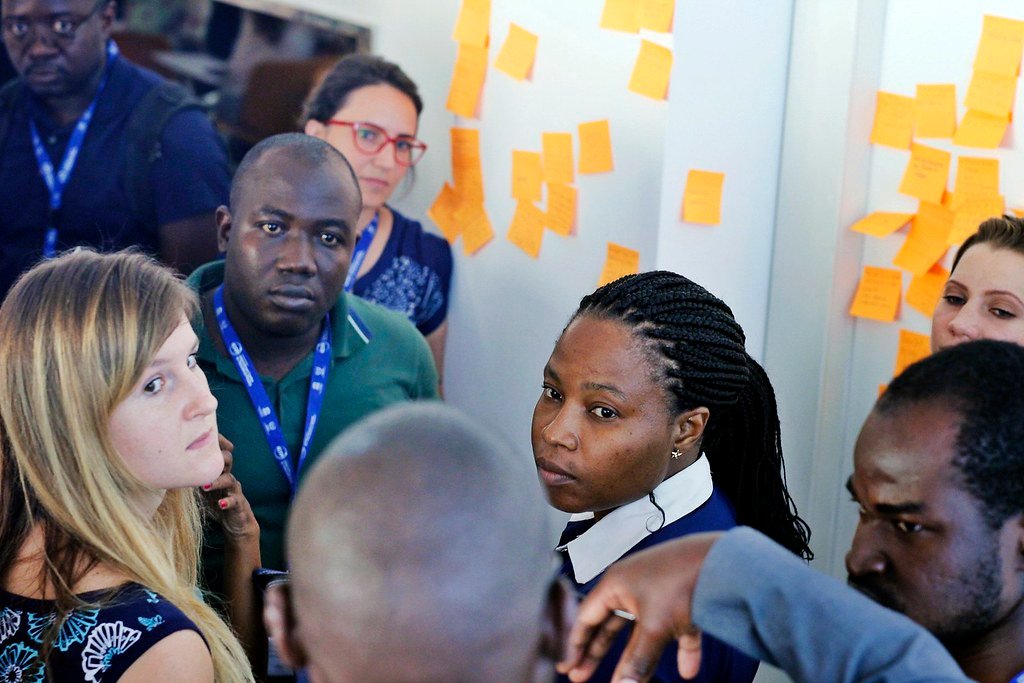Picture this: a young Black woman in a lab coat, peering through a microscope at cells that could unlock the secrets of sickle cell disease. Nearby, an Indigenous researcher maps traditional ecological knowledge onto climate data, revealing patterns that decades of conventional science missed. This isn’t just feel-good diversity theater – it’s the cutting edge of scientific revolution. When marginalized scientists step into leadership roles, they don’t just change who’s in the room; they fundamentally transform what questions get asked, how research gets conducted, and ultimately, what discoveries reshape our world.
Breaking the Ivory Tower’s Glass Ceiling

The traditional scientific establishment has long resembled an exclusive club where membership required fitting a very specific mold. For generations, research leadership positions were dominated by white, male, often wealthy academics who shaped the entire direction of scientific inquiry. But something remarkable happens when this monopoly breaks down. Marginalized scientists bring lived experiences that expose blind spots in research design, revealing how systemic biases have skewed everything from medical studies to environmental research. They ask the uncomfortable questions that privileged researchers never thought to pose. When Dr. Kizzmekia Corbett led coronavirus vaccine development, her perspective as a Black woman in immunology brought urgency and cultural competence that proved crucial during the pandemic. The result? Research that actually serves diverse communities rather than just studying them.
The Power of Different Questions

Traditional research often starts with questions framed by dominant cultural perspectives, but marginalized scientists flip the script entirely. They don’t just seek different answers – they ask completely different questions that challenge fundamental assumptions. A Latino environmental scientist might investigate how pollution disproportionately affects immigrant communities, while a researcher with disabilities might explore how medical devices fail to accommodate diverse body types. These aren’t just niche topics; they’re massive blind spots that have compromised scientific validity for decades. When you’ve personally experienced being overlooked by mainstream research, you develop an almost supernatural ability to spot what others miss. The questions themselves become revolutionary acts that reshape entire fields of study.
Cultural Knowledge Meets Scientific Method

Indigenous and traditional knowledge systems have sustained communities for thousands of years, yet mainstream science has historically dismissed these insights as “unscientific.” When marginalized scientists lead research, they create bridges between traditional wisdom and modern methodology that produce stunning breakthroughs. An Indigenous climate researcher might combine ancestral observations of seasonal patterns with satellite data, revealing environmental changes invisible to conventional metrics. Pacific Islander scientists studying ocean acidification draw on generations of fishing knowledge to identify ecosystem shifts that laboratory studies missed. This isn’t about replacing scientific rigor – it’s about expanding what counts as valid evidence and recognizing that empirical observation takes many forms. The fusion creates research that’s both more comprehensive and more accurate.
Dismantling Methodological Bias

Every research methodology carries the fingerprints of its creators, and for too long, those fingerprints belonged to a remarkably homogeneous group. Marginalized scientists serve as methodological detectives, uncovering how research design itself perpetuates inequality. They reveal how clinical trials that exclude pregnant women leave half the population vulnerable to adverse drug reactions. They expose how psychological studies conducted entirely on college students from wealthy backgrounds fail to capture human diversity. When women scientists lead cardiac research, they discover that heart attack symptoms manifest differently in female patients – knowledge that saves lives but was overlooked for decades. These aren’t minor tweaks to existing methods; they’re fundamental reconstructions of how science gets done.
Community-Centered Research Approaches

Marginalized scientists often maintain deep connections to the communities they study, creating research partnerships rather than extractive relationships. Instead of parachuting into communities to collect data and disappear, they build long-term collaborations that benefit everyone involved. A formerly homeless researcher studying housing policy brings authenticity and trust that enables deeper, more honest data collection. Native American scientists working on reservation health issues don’t need cultural translators – they are the culture. This community embeddedness doesn’t compromise objectivity; it enhances it by providing context that distant observers inevitably miss. The research becomes a tool for community empowerment rather than academic career advancement.
Innovation Through Necessity

Marginalized scientists often work with fewer resources, which paradoxically drives incredible innovation and creativity. When you can’t afford the latest equipment or access exclusive databases, you develop ingenious workarounds that sometimes prove superior to conventional approaches. African scientists studying infectious diseases create diagnostic tools from smartphone cameras and everyday materials, making testing accessible in resource-limited settings. Researchers from working-class backgrounds develop cost-effective methodologies that democratize scientific research. This resourcefulness doesn’t just solve immediate problems – it reimagines what’s possible with less, creating sustainable research models that benefit science globally. Constraint becomes the mother of invention in the most literal sense.
Challenging Publication and Peer Review Gatekeeping

The scientific publishing system has long functioned as a gatekeeper that maintains existing power structures, but marginalized scientists are revolutionizing how knowledge gets shared and validated. They’re creating alternative publication platforms, organizing inclusive peer review processes, and challenging the assumption that only certain journals confer legitimacy. When research challenges dominant narratives or uses unconventional methodologies, traditional peer review can become a barrier rather than a quality control mechanism. Marginalized scientists develop new forms of scholarly communication that prioritize accessibility and community relevance over prestige. They’re proving that scientific rigor doesn’t require exclusivity, and that democratizing knowledge actually strengthens rather than weakens scientific integrity.
Intersectionality in Research Design

Marginalized scientists understand that human experience isn’t neatly compartmentalized, leading to research designs that account for intersecting identities and complex social realities. Instead of studying race or gender or class in isolation, they examine how these factors interact to create unique experiences and outcomes. A Black female surgeon doesn’t just study racial bias in medicine or gender discrimination in surgery – she investigates how both factors combine to create distinct challenges and opportunities. This intersectional approach reveals patterns invisible to single-variable studies, producing more nuanced and accurate understanding of complex social phenomena. The research becomes three-dimensional rather than flat, capturing the full complexity of lived experience.
Global South Leadership in Science

Scientists from the Global South bring perspectives shaped by different economic realities, environmental challenges, and social structures that dramatically expand the scope of scientific inquiry. When Indian researchers lead water purification studies, they prioritize affordability and scalability in ways that wealthy country scientists might overlook. African scientists studying infectious diseases understand disease ecology in contexts where pathogens, poverty, and climate intersect. These researchers don’t just adapt Western science to local conditions – they fundamentally reconceptualize what problems matter and how solutions should work. Their leadership transforms science from a luxury good for wealthy nations into a tool for global problem-solving.
Mental Health Research Revolution

Marginalized scientists studying mental health bring lived experience of trauma, discrimination, and resilience that revolutionizes both research questions and therapeutic approaches. They investigate how racism itself functions as a stressor, how poverty affects brain development, and how LGBTQ+ identity intersects with mental wellness in ways that previous research ignored. A researcher who has navigated the mental health system as a patient brings insights about treatment barriers that purely academic researchers miss. They develop culturally responsive interventions and challenge diagnostic frameworks that pathologize normal responses to abnormal circumstances. The research becomes both more scientifically rigorous and more therapeutically effective.
Technology and Digital Inclusion

Marginalized scientists in technology fields are reshaping artificial intelligence, data science, and digital innovation by centering equity and inclusion in algorithm design. They recognize that biased data produces biased outcomes, and they develop methodologies to identify and correct these distortions. When Black computer scientists lead facial recognition research, they ensure the technology works for all skin tones rather than just light ones. Researchers with disabilities design user interfaces that accommodate diverse ways of interacting with technology. This isn’t just about making technology more inclusive – it’s about making it more accurate and effective for everyone.
Climate Science Through Vulnerable Eyes

Climate researchers from frontline communities bring urgency and specificity to environmental science that transforms both research priorities and policy recommendations. They don’t study climate change as an abstract future threat – they investigate it as a present reality affecting their families and neighbors. Island nation scientists studying sea level rise bring precision about local impacts that satellite data alone cannot capture. Indigenous Arctic researchers document permafrost changes through traditional knowledge systems that span generations. Their leadership ensures climate science serves the communities most affected by environmental change rather than just providing data for academic journals.
Medical Research That Serves Everyone

Marginalized scientists in medicine are dismantling research practices that have historically excluded or misrepresented diverse populations, creating more inclusive and effective healthcare solutions. They investigate how genetic diversity affects drug metabolism, how cultural factors influence health outcomes, and how social determinants shape disease patterns. When Latino researchers lead diabetes studies, they account for cultural dietary practices and economic constraints that affect treatment adherence. Black researchers studying maternal mortality bring lived understanding of healthcare disparities that enables more effective interventions. The research becomes both more scientifically robust and more clinically relevant.
Challenging Scientific Racism and Bias

Marginalized scientists are actively working to dismantle the legacy of scientific racism and bias that has distorted research for centuries. They critique studies that pathologize cultural differences, challenge genetic determinism, and expose how supposedly objective measurements often embed subjective biases. Their work reveals how scientific methods have been weaponized to justify discrimination, while developing new approaches that celebrate human diversity rather than hierarchizing it. This isn’t just academic housekeeping – it’s fundamental reconstruction of scientific ethics and methodology. They’re proving that more inclusive science is simply better science.
Collaborative Networks and Mentorship

Marginalized scientists create support networks and mentorship systems that nurture the next generation of diverse researchers, multiplying their impact exponentially. They understand that representation matters not just for equity but for scientific excellence, so they actively work to expand opportunities for underrepresented groups. These networks become incubators for innovative research approaches and alternative career pathways. A Latina physicist doesn’t just conduct her own research – she mentors young women in STEM and creates pathways for others to follow. The result is a cascading effect that transforms entire scientific disciplines over time.
Open Science and Knowledge Democratization

Marginalized scientists often champion open science practices that make research more accessible and transparent, challenging the traditional paywall system that restricts knowledge access. They advocate for open data sharing, preprint servers, and collaborative research platforms that democratize scientific participation. Researchers from developing countries, who have historically been excluded from expensive journal subscriptions, lead efforts to create alternative publication models. They recognize that hoarding knowledge perpetuates inequality, so they develop systems that make scientific information freely available to anyone who needs it. This democratization doesn’t lower standards – it raises them by subjecting research to broader scrutiny and application.
Redefining Scientific Success

Marginalized scientists are challenging narrow definitions of scientific success that prioritize publication quantity over community impact, reshaping how we measure research value. They advocate for metrics that account for social relevance, community engagement, and real-world application rather than just citation counts and journal prestige. A public health researcher working in underserved communities might measure success by disease prevention rather than paper publications. Environmental scientists might prioritize policy influence over academic recognition. This redefinition doesn’t lower standards – it expands them to include dimensions that academic elites have traditionally ignored.
Training the Next Generation

When marginalized scientists become educators and mentors, they transform how the next generation approaches research, creating a ripple effect that reshapes entire scientific disciplines. They teach students to question assumptions, center equity in research design, and value diverse forms of knowledge. Their classrooms become laboratories for developing more inclusive and effective research methodologies. They demonstrate through their own careers that scientific excellence and social justice aren’t competing values – they’re complementary forces that strengthen each other. Students learn that being a scientist means more than just conducting experiments; it means using knowledge to create a more just and sustainable world.
The transformation happening when marginalized scientists lead research isn’t just about fairness or representation – it’s about unleashing scientific potential that has been systematically suppressed for generations. These researchers aren’t just changing who gets to do science; they’re changing what science can accomplish. Their leadership reveals that diversity isn’t a nice-to-have addition to scientific excellence – it’s a fundamental requirement for it. As more marginalized voices assume research leadership, we’re witnessing the emergence of a more rigorous, more relevant, and more revolutionary form of scientific inquiry. The question isn’t whether this transformation will continue – it’s whether established institutions will adapt quickly enough to harness its full potential. What discoveries might we have missed because we weren’t listening to these voices sooner?




